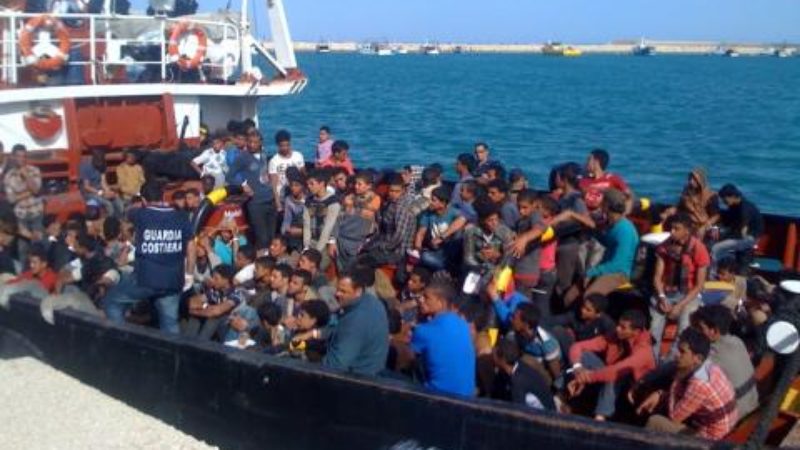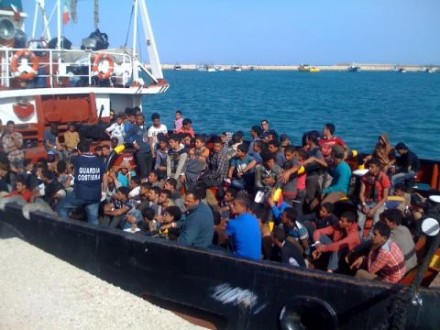

We’ve all been moved by the distressing images of refugee children arriving in Europe, having made perilous journeys to get here. Clad in life jackets, with just the possessions in their hands, it’s hard to fathom the dangers these children have lived through – even before risking their lives on a sea crossing that has cost more than 3,000 lives this year. Yet difficult though it may be, it’s important for us to try and understand what is driving families to take such a journey. As the British-Somali poet Warsan Shire put it recently: “you only leave home, when home won’t let you stay”.
Across the world, children’s homes have become battlefields, leaving them in urgent need of protection from violence. Threatened by bombing, street fighting and attacks by armed groups, children have lost lives and limbs, parents and siblings, and almost every aspect of their childhoods. Fleeing conflict and persecution, last year more people were forced to leave their homes than ever before, with children making up just over half of all refugees – the highest proportion for more than a decade.
Even on reaching neighbouring countries, refugee children remain in real danger of exploitation and abuse. Five years into the Syria crisis, Unicef reports that in Lebanon, Syrian refugee children as young as ten are victims of bonded agricultural labour; in some refugee communities in Jordan, child marriage has as much as doubled. In such circumstances, as in all emergencies, protecting children from violence is life-saving, just like water, shelter and medicine – yet it isn’t prioritised in the same way in the global emergency response.
The UK is rightly providing aid to the Syria region. But whilst aid is one vital aspect of the UK’s support for children in emergencies, it cannot be the only response. We must do more to ensure that protection from violence, exploitation and abuse is a strategic and essential part of humanitarian action – ensuring that policies and programmes that keep children safe are systematically included both in the emergency response and long-term efforts to build resilience. The first World Humanitarian Summit next year is an opportunity to deliver this systemic change, and it’s crucial that the UK puts protecting children centre-stage, rallying the rest of the international community to keep children safe.
There is also more that the UK must do now to protect children who have fled their homes and are on the move. We need continued UK support for search and rescue operations, protecting children who are at the greatest risk of losing their lives on treacherous journeys. Beyond the welcome resettlement of Syrian refugees, we also urgently need legal routes to safety – particularly for an estimated 10,000 unaccompanied and separated children who have already arrived in Italy and Malta alone this year. As winter approaches, these children will be desperately vulnerable and the UK should play its part in bringing them to safety, putting children’s own best interests first. It is only in doing so that we will help these children to find a home once again, where they can live, settle and build a future.
Wes Streeting is the Member of Parliament for Ilford North. For more information read Unicef UK’s new briefing on protecting children in emergencies




More from LabourList
‘Tackling poverty should be the legacy of Keir Starmer’s government’
‘The High Court judgment brings more uncertainty for the trans community’
‘There are good and bad businesses. Labour needs to be able to explain the difference’